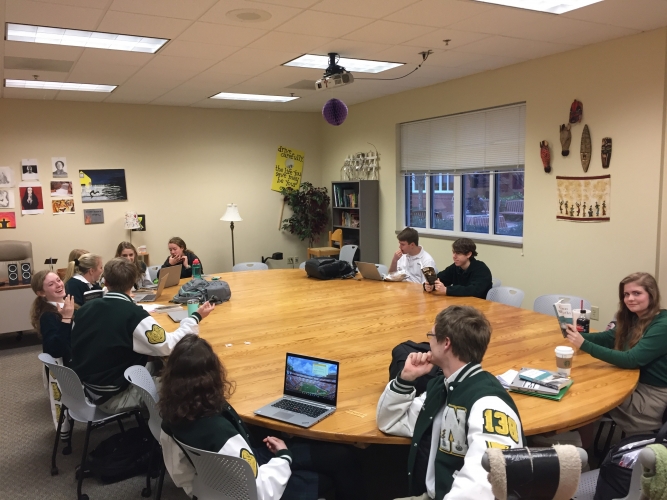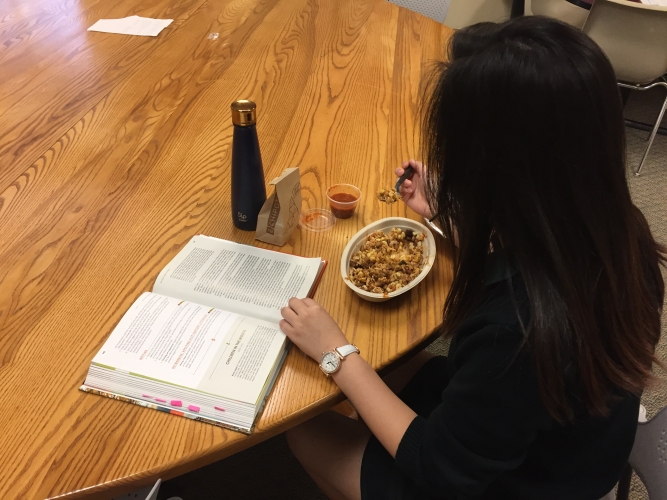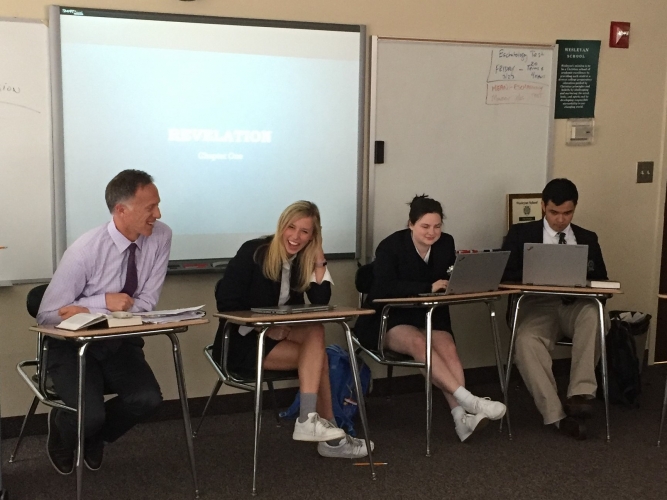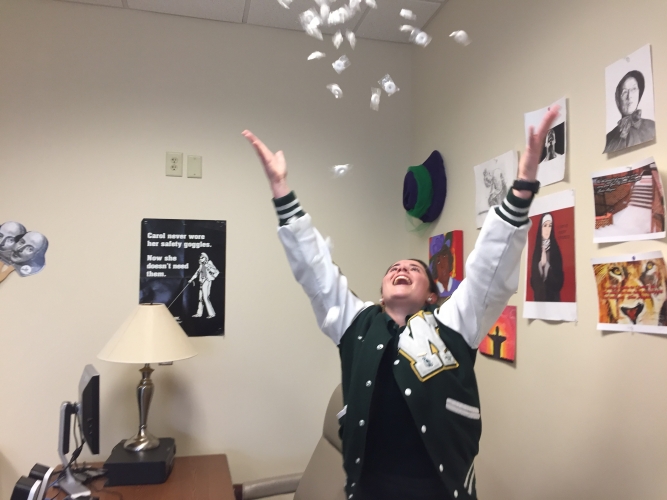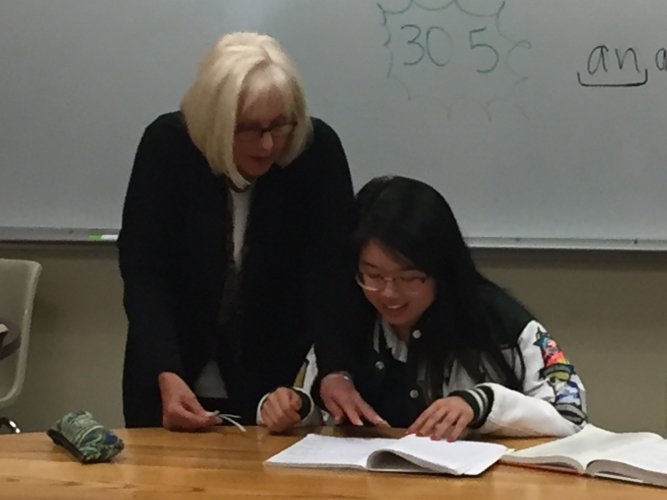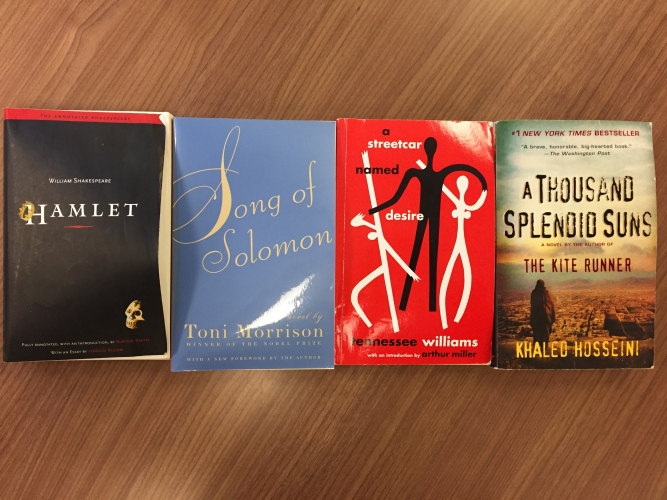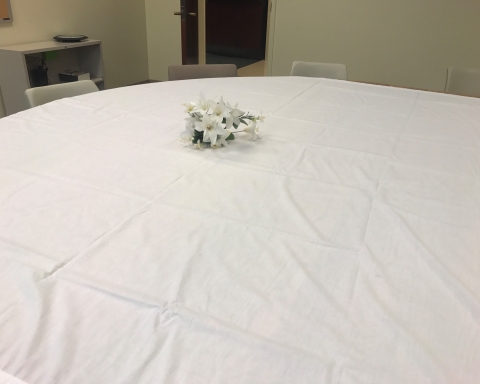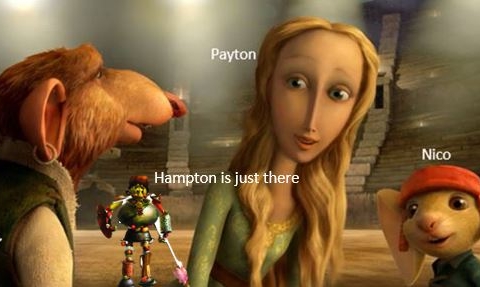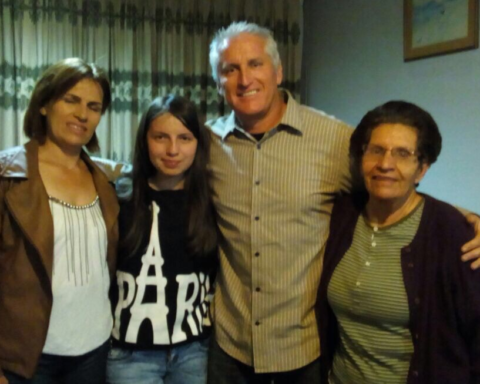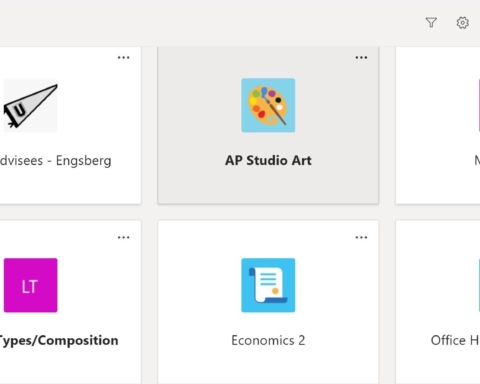Freshmen Constance Harris and Elsah James are approached. Can they say what 180-Degree Theology teaches? “No.” Do they know what “eschatology” means? “Eschatology is… what.” The confusion goes beyond Bible, with similar sounding English classes making decisions hard for rising seniors. Some classes are strangely named, confusing students who still do not know the standard courses.
Out of all core classes, few have courses so often mistaken for each other as the English department. While World, American and English Literature classes are self-explanatory, it is difficult for students to differentiate AP Language and Comprehension and AP Literature and Composition. Both deal with complex themes, intricate methods and rigorous work, so it is no wonder why Senior Grade Chair Kendra Morris sometimes comes to junior classes to explain the difference. Though the two share similarities, their emphasis on what they examine in a work makes them unique.
English Department Chair Joe Tamel teaches AP Literature alongside Morris, who was instrumental in forming the class. “Sometimes we see AP Lit as the apex of the English department,” Tamel explained. “We let it determine what we teach all the way down to fifth grade.”
AP Literature has the highest level of literary analysis possible in high school curriculum, which means a lot of reading and talking about books. Tamel said, “A student wanting to take the class should love to read. I have students who enjoy reading on their own, too.” Students who are averse to reading assignments at home, he warned, should steer clear of AP Literature.
Class time consists mostly of discussing the latest chapters read in their current book. Examples of titles read in the course include “A Thousand Splendid Suns,” “A Streetcar Named Desire,” “Hamlet,” “All the Pretty Horses” and various short stories and poems from varying time periods. “I would like to add books of poetry,” Tamel said. “I was thinking of adding Kaveh Akbar’s book, ‘Calling a Wolf a Wolf.’” Novels read may change from year to year, but the core learning experience does not.
AP Language is an entirely different course altogether, no matter how similar the name. Assistant Director of College Advising Andrea Shupert takes great joy in teaching it. “Most people really enjoy the class,” she said. “It’s a lot of looking at nonfiction works. While AP Lit is diving into the meaning of the work, AP Lang is about how authors use rhetorical devices to prove their points.”
After years spent learning how to write persuasive and expository essays, AP Language is the logical conclusion to the development of writing. Shupert said, “This is the kind of writing you’ll most likely be doing for the rest of your life.” With Wesleyan’s high standards for scores, it is possible that students who go on to medicine, science or business fields will utilize skills learned in the class for college thesis or everyday work.
A unique assignment given every year is to write a research paper regarding mental illness. While it may sound intimidating, Shupert readily disagrees. “If a research paper can be fun, this is it,” she claimed. “Students choose a movie from a list and research the mental disorder it’s about. They analyze the movie’s portrayal of the illness and whether it’s accurate or not.” Shupert’s daughter is a therapist, and Shupert said she has learned from her daughter’s profession. “Mental health is a huge issue in college campuses. Chances are it will affect you or someone you know if it hasn’t already.” To Shupert, AP Language gives students perspective on relevant topics not often explored inside Wesleyan.
Shupert recommends the class to organized, independent students who already have a strong familiarity with literature. The most important part when picking between the two classes, she stated, is to find one’s niche. “I typically ask my students what they love. Do they love digging into what an author is trying to say, or do they want to learn to write persuasive essays with a purpose? Find which one is your sweet spot and stick with it.”
A third option exists for those whose sweet spot lies in more artistic endeavors. For underclassmen and juniors (Sorry seniors!), Wesleyan is instituting a new class next year called “Literary Types and Composition.” In other words, a creative writing class has finally come to the school.
The class will be taught by English teacher Dawson Zimmerman. He explained, “It’s going to be a creative writing workshop environment. Everyone is going to be drafting their own pieces that are then workshopped and revised within the group with the ultimate goal of coming away from the course with a portfolio of work.”
Zimmerman will be teaching differently than what he is used to, since the class will be mostly student led. “It’s going to require a lot of participation,” he said. “There won’t be memorization or taking notes; you’ll be evaluating your peers’ work.” Students will bring their work to hand out to the class and write down the feedback given from friends. Improvement will be largely handled by the class itself, with the guiding hand and knowledge of Zimmerman.
“It’s a cool environment for students to feel like their work has a bigger audience than just their teacher,” said Zimmerman. “A lot of the time you’re submitting papers into a vacuum that goes just between student and teacher, and this class breaks that down a little bit.”
Short stories, poetry, memoirs and more will be covered throughout the year. Students who feel a need to express themselves creatively will find the class invaluable for refining their art.
Besides English, the Bible department has some of the vaguest and most misconceived course titles due to their complex subject matter. While Geometry can be titled as such for educating with shapes, it is more difficult to summarize the purpose of religion in a single word. The confusion is compounded by a jump in difficulty from previous Bible classes.
For evergreens, high school Bible is a shock compared to the middle school lessons. “In middle school, we had memory quizzes here and there,” said Freshman Constance Harris. “In high school you think more about what you’re reading.” The Bible is full of moral, historical and even present-day topics that require long term in-depth scrutiny to fully absorb their significance. As such, they are divided into several courses.
Eschatology, implemented this year and in high demand, focuses on learning about the last book of the Bible, Revelation. Classes discuss which lens they can view the end times with, signs it is coming, the symbols in Revelation and how media portrays events such as rapture. Junior Amanda Doane recalled, “We’ve talked about the mark of the beast and the significance of numbers like seven and 144,000.”
Eschatology teachers Glenn Archer and Matthew Means teach the class, and often join to teach two different periods at the same time. “We have playdates all the time!” exclaimed Doane. “It’s fun when we collaborate, since our classes are small enough to become full-sized when we combine.”
Besides Eschatology, students tend to speak highly of the longer-established class, World Religions. “I’ve been told to take World Religions by upperclassmen,” said Freshman Elsah James.
Senior Josiah Emmelhainz explains how the class clears up misconceptions about religions like Hinduism, Sunni and Shia Muslims, and other beliefs not often found in Georgia. He said, “It opens you up to the world and new concepts in a way other classes don’t. As a flourishing young adult, you need that.”
Students go on a field trip to a Hindu temple in World Religions, a valuable visit for the many who are not familiar with anyone who practices. Beyond that, they also get to pick a religion of their choice to research and present to the class. All of it is brought back to similarities and differences to Christianity. It is relevant and appealing to students who want to know more about the world outside of Wesleyan.
While World Religions teaches about religion and how it affects the world, Global Justice talks about how the world affects religion. Students examine pop culture, from movies to music, and discuss what message each work sends its audience.
It is a favorite among most students who have taken the course. “It helps me understand the Bible more and apply it to my life,” said Doane. It may be due to the movies watched—”The Truman Show” and “The Pursuit of Happyness”—or maybe the focus on class discussion and activities. Unless teenagers unanimously decide to stop consuming pop culture, the class is likely to remain popular.
It is hard for the name of a course to capture all of its curriculum. When deciding on future schedules, it would be wise to slow down and ask upperclassmen and teachers what classes teach instead of going on a hunch. Anyone who wants to be more informed, class descriptions can be found at Wesleyan’s site, https://www.wesleyanschool.org, under the “academics” tab.

